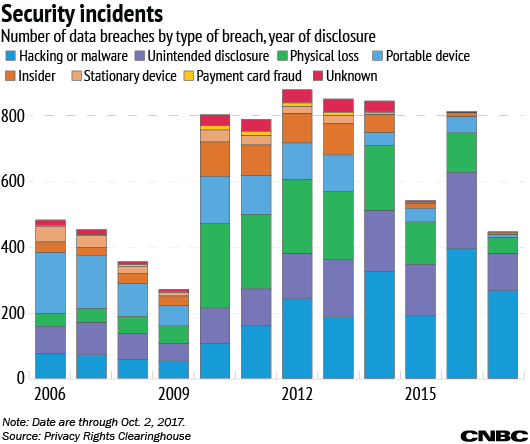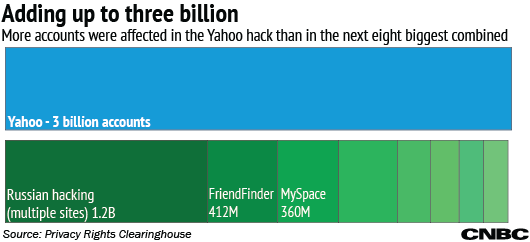With the announcement Tuesday that all three billion accounts were affected by a 2013 hack, Verizon-owned Yahoo became the victim of the biggest overall data breach by a long shot, according to a CNBC analysis of a database of reported breaches.
In recent years, high-profile hacks have been bigger and more frequent. Part of that trend is due to greater use of online storage and social media, as well as the massive amounts of personal data now stored in the cloud. Some is linked to more sophisticated tools being deployed to illicitly access personal information. Theft of portable devices like laptops and unintended disclosures used to account for much more of the data breaches that happened, according to data maintained by the Privacy Rights Clearinghouse.
So far this year, hacks have made up more than half of the reported data breaches, more than any year in the past decade.




